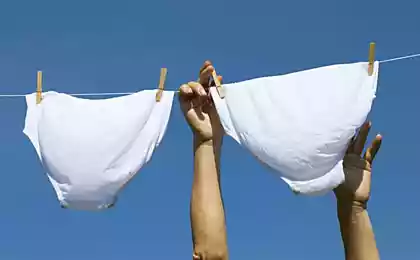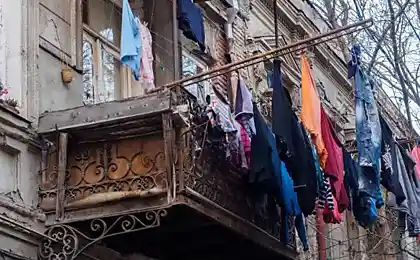1317
Male laundress (9 photos)
In Mumbai, there is a known place - Dhobi Ghat (Dhobi Ghat), where men laundress, still referred to as "Dhobi" or "Dhobi-shaft", wash clothes and linens tenants hotels local hospitals.
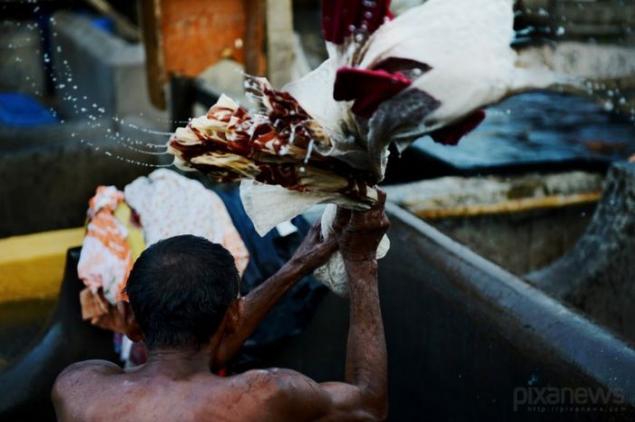
Dhobi - a caste belonging to the Dalit (untouchable). Even the right kind of Hindu Dhobi disgusting. Laundresses services because of their cheapness is often used including luxury hotels.
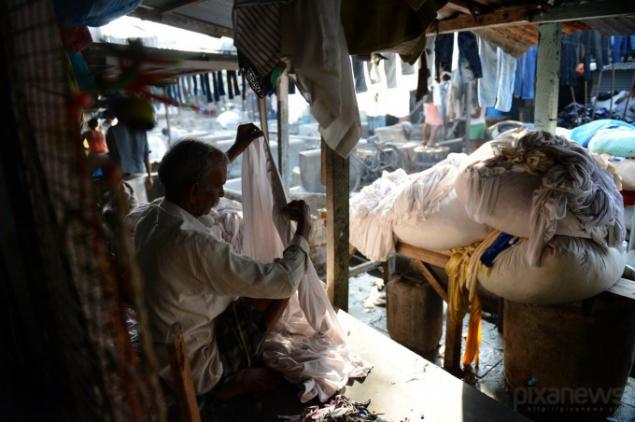
Every morning, "Dhobi-shaft» (dhobiwallah) dirty linen is delivered here from all over Mumbai. He piled in huge heaps, and washed in numerous tanks - tanks, tanks - located in the laundry room.
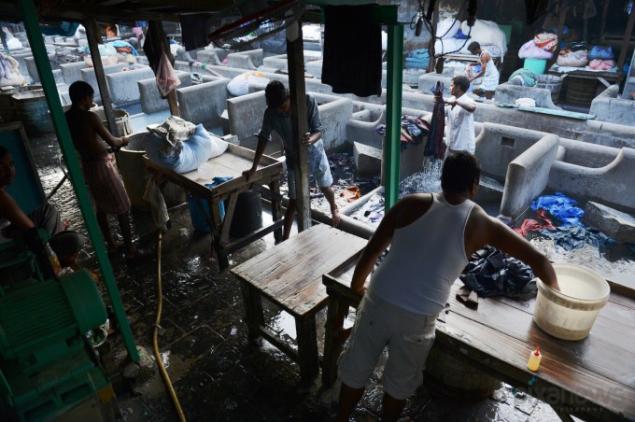
Laundry in the Indian - employment is extremely time-consuming and requires a lot of physical strength. First Dhobi (Landry, or as they were called during the days of British rule) soaked clothes in the huge concrete tub with water and soap nuts. India has long been used detergent, but the real Landry did not notice and continued to erase the old as their grandfathers and great grandfathers.
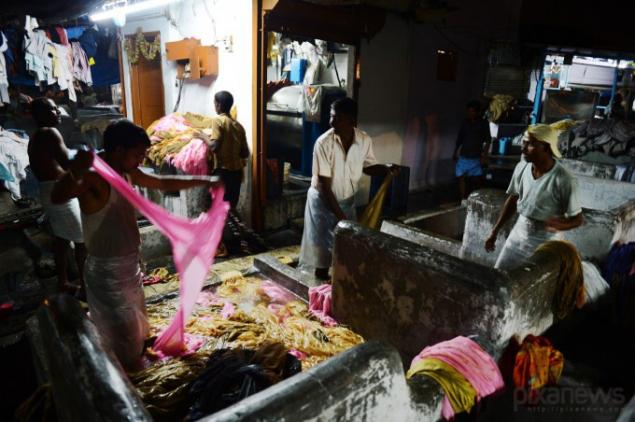
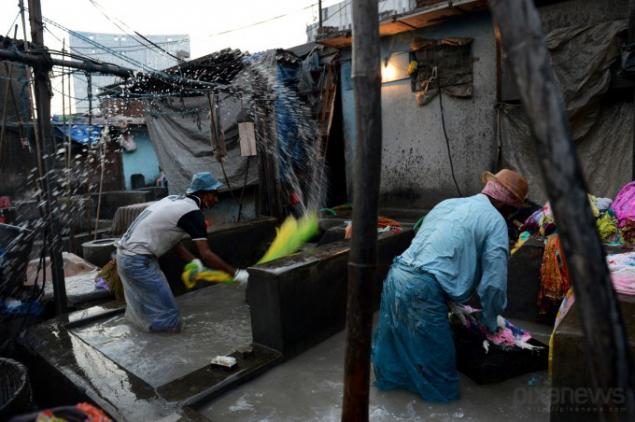
After soaking the laundry is squeezed, and the Dhobi 20-30 times vigorously thing hits the concrete edge of the tub, beating the dirt from the laundry, so that the fabric is washed to the incredible purity, but ordinary shirt stand just a few of these "washings." Then stiralschik carries underwear out to dry under the hot Indian sun. Ends case iron prehistoric structures, filled with coals.
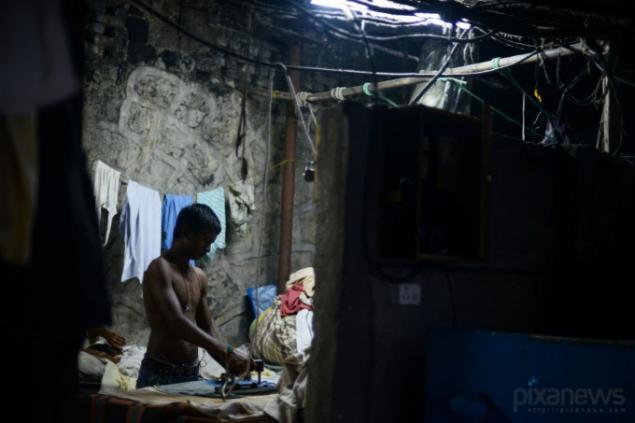
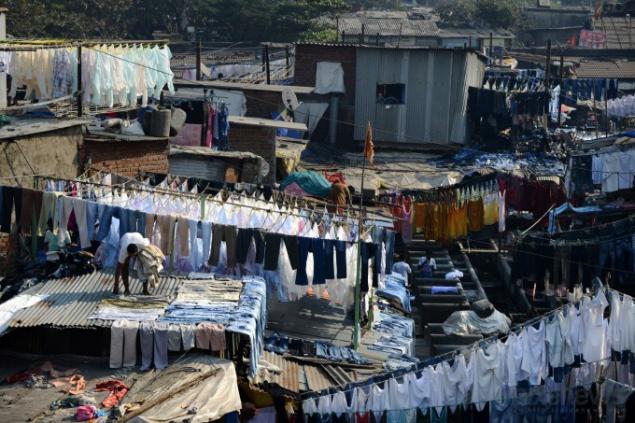
Dhobi Ghat is often compared to a beehive. This comparison is not accidental: each Dhobi as every bee has its narrow specialization. Some washed, the other - stroking, and others - make out the clothes and gently fold it. All this happens incredibly fast, as if in mockery of the-art washing machines.
Dhobi Ghat is considered to be the world's largest hand-laundry outdoors. It covers an area of ten hectares. In the laundry work 700 families from Dhobi caste, which has long been the case handed down.
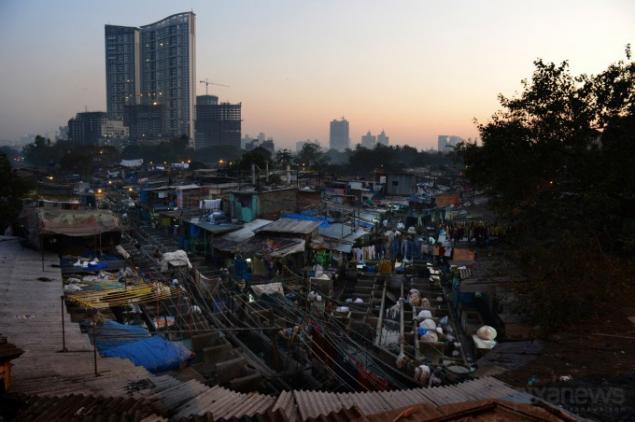
Dhobi day otdrait time to rinse and 1000 items of clothing in exchange for his hellish work just $ 7. Recently Dhobi services are increasingly rare because of the growth of the welfare of the Indians. More and more Indians use the washing machine, and less and less services laundresses.
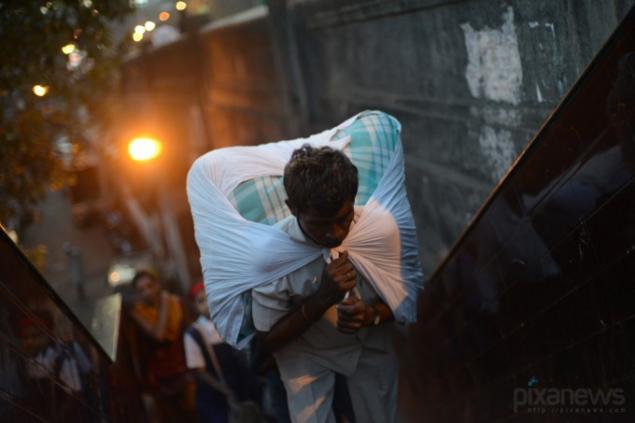
Dhobi carries freshly washed, kiln dried and ironed linen.
Source: pixanews.com

Dhobi - a caste belonging to the Dalit (untouchable). Even the right kind of Hindu Dhobi disgusting. Laundresses services because of their cheapness is often used including luxury hotels.

Every morning, "Dhobi-shaft» (dhobiwallah) dirty linen is delivered here from all over Mumbai. He piled in huge heaps, and washed in numerous tanks - tanks, tanks - located in the laundry room.

Laundry in the Indian - employment is extremely time-consuming and requires a lot of physical strength. First Dhobi (Landry, or as they were called during the days of British rule) soaked clothes in the huge concrete tub with water and soap nuts. India has long been used detergent, but the real Landry did not notice and continued to erase the old as their grandfathers and great grandfathers.


After soaking the laundry is squeezed, and the Dhobi 20-30 times vigorously thing hits the concrete edge of the tub, beating the dirt from the laundry, so that the fabric is washed to the incredible purity, but ordinary shirt stand just a few of these "washings." Then stiralschik carries underwear out to dry under the hot Indian sun. Ends case iron prehistoric structures, filled with coals.


Dhobi Ghat is often compared to a beehive. This comparison is not accidental: each Dhobi as every bee has its narrow specialization. Some washed, the other - stroking, and others - make out the clothes and gently fold it. All this happens incredibly fast, as if in mockery of the-art washing machines.
Dhobi Ghat is considered to be the world's largest hand-laundry outdoors. It covers an area of ten hectares. In the laundry work 700 families from Dhobi caste, which has long been the case handed down.

Dhobi day otdrait time to rinse and 1000 items of clothing in exchange for his hellish work just $ 7. Recently Dhobi services are increasingly rare because of the growth of the welfare of the Indians. More and more Indians use the washing machine, and less and less services laundresses.

Dhobi carries freshly washed, kiln dried and ironed linen.
Source: pixanews.com











